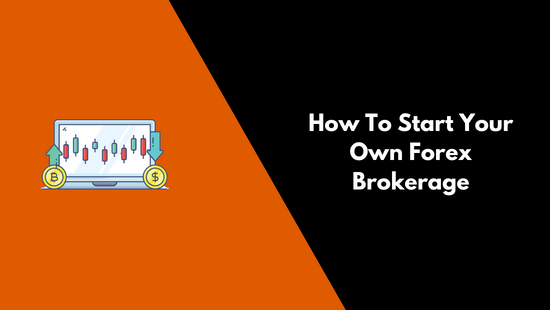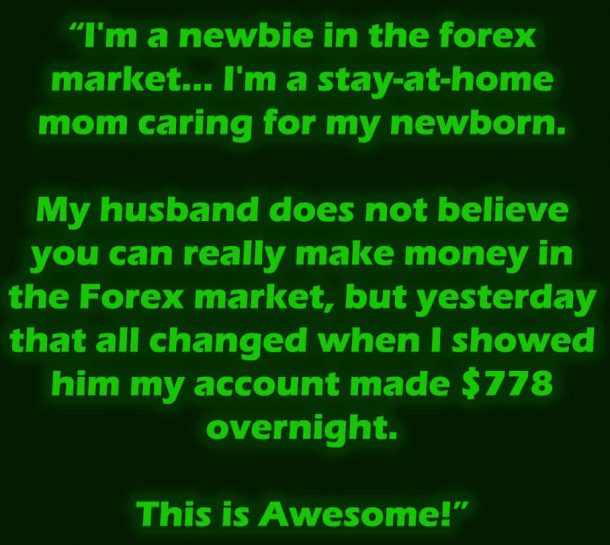
Are you ready to reap the rewards of running your own Forex brokerage? If so, now is the perfect time to make that dream a reality. With an ever-increasing number of traders entering the foreign exchange market, there has never been a better opportunity for ambitious entrepreneurs to start their own business. This article will provide an actionable guide on how to get started with launching your very own Forex brokerage.
From finding the right platform and setting up accounts, through to marketing strategies and customer support – we’ll cover everything you need to know about creating your successful Forex brokerage from scratch. So whether you’re a seasoned trader looking for freedom or a budding entrepreneur eager for success, this comprehensive roadmap will help you launch your next venture!
Get set for success: read on as we explore the essential steps to starting your own Forex brokerage today!
Contents
- 1 What Is Forex Brokerage?
- 2 Business Model For Forex Brokerage
- 3 Guidelines To Becoming A Forex Broker
- 4 Prerequisites For Starting Forex Brokerage
- 5 Setting Up A Forex Brokerage Company
- 6 Necessary Licensing And Regulations For Forex Brokers
- 7 Cost Of Setting Up A Forex Brokerage Firm
- 8 Operating Procedures For A Successful Forex Brokerage Company
- 9 How To Create A Profitable Business Plan
- 10 Tips And Strategies For Growing Your Forex Business
- 11 Finding The Right Software Platforms To Support Your Forex Brokerage Firm
- 12 Choosing The Best Partnerships And Suppliers To Maximize Profits
- 13 Strategies For Expanding Your Reach As A Foreign Exchange Broker
- 14 Conclusion
What Is Forex Brokerage?
Forex brokerage is a service that allows traders to access the forex market and buy, sell, or exchange currencies. It’s an exciting way of trading that involves predicting whether one currency will gain or lose value relative to another. Forex brokers provide access to this financial marketplace and facilitate trades for their clients by acting as intermediaries between buyers and sellers. They also offer advice on currency movements and risk management strategies.
To become a successful forex broker, you need to have knowledge about the markets, excellent communication skills, good customer service skills, understanding of different types of orders, and be comfortable with technology such as charting software. You must also understand margin requirements and regulations in order to ensure compliance with industry standards.
Additionally, having experience in trading can help inform your decisions when providing advice to clients. When starting your own brokerage firm, it’s important to create a business plan outlining what type of services you will provide and how you plan on marketing them effectively.
Business Model For Forex Brokerage
After understanding the concept of Forex brokerage, let’s dive into creating a successful business model. First and foremost, you must have a plan in place that outlines your strategy for success. This means having an effective marketing strategy, a clear vision of how to make money from trading, and a well-defined risk management policy.
To begin with, it is important to understand what makes up the different components of a forex broker’s business model: spreads and commissions charged on trades; margin rates; access to liquidity providers; order execution speed; customer service support; technology platforms offered; regulatory compliance measures taken by the broker; and any other services provided.
Once these elements are in place, it is crucial to determine which type of clients you want to target – retail or institutional traders – as this will affect the fees associated with each account type. Additionally, you need to decide how much capital you would like to deploy towards your own trading operations versus relying solely on client accounts. With this information at hand, you can then select the right pricing structure based on competitive analysis of comparable firms within the same market space.
Lastly, establishing relationships with reputable banks and liquidity providers is critical when setting up your FX brokerage firm so that customers get quick order executions while keeping their funds secure.
Guidelines To Becoming A Forex Broker
So, you’ve decided to become a Forex broker. It’s an exciting concept and one that could lead to great success if done correctly. Before we move on though, it’s important for us to take a look at the steps necessary to start your own brokerage.
The first thing you’ll need is capital. Without enough money behind you, it will be difficult or even impossible to get approved by regulatory bodies such as the National Futures Association (NFA) in the US or the FCA in Europe. Make sure that you have sufficient funds before applying, otherwise you may face unnecessary delays and extra costs later down the line as part of the application process. Additionally, having a good understanding of local regulations is key since different countries may impose their own rules regarding forex trading operations.
Once you’ve got everything sorted out with regards to funding and regulation, then comes the fun stuff – setting up your business! You’ll want to find a reliable platform provider who can handle all of your back-end needs so that you can focus on providing top-notch customer service and finding new clients. This includes things like choosing which payment gateways are available for deposits/withdrawals and what type of leverage ratios are allowed for traders.
Don’t forget about risk management either; this is essential for keeping your customers safe while still allowing them plenty of room to make profitable trades. Finally, don’t underestimate how important marketing strategies are – they’re crucial for attracting new clients and ensuring steady growth over time!
Prerequisites For Starting Forex Brokerage
Starting a forex brokerage is no easy feat, and it requires certain prerequisites to be successful. Aspiring brokers should begin by looking at their individual skillset and qualifications, as well as the environment in which they would like to operate. In order for an aspiring broker to take full advantage of the potential within this industry, there are certain steps that must be taken before launching a business.
First and foremost, it’s essential to have a thorough understanding of all aspects of forex trading – from how currencies move against one another, market trends and regulation requirements. Having this knowledge will not only save time when setting up the business but also provide confidence when engaging with clients.
It’s vital to understand the risks associated with foreign currency transactions so you can advise your customers on how best to manage these risks. Additionally, having strong analytical skills is key because without them you won’t be able to accurately assess market conditions or make wise investment decisions.
Aside from technical know-how, starting a brokerage firm also involves other components such as obtaining licenses and meeting capital requirements set out by regulatory bodies. These stipulations vary from country to country, so it’s important to research local laws thoroughly before investing any money into getting started. Furthermore, it’s beneficial for brokers to develop relationships with banks who specialize in providing services related to international payments and transfers – this way funds can be easily transferred between countries quickly and safely. Establishing relationships with partners overseas can open up more opportunities for growth too!
Setting Up A Forex Brokerage Company
Starting your own Forex brokerage can be an exciting and rewarding experience. Taking the time to plan out the necessary steps will help ensure a successful launch for your business. First, you’ll need to decide which type of company structure is best for you – a sole proprietorship, partnership or corporation. Each has its advantages and disadvantages so take some time to consider what works best for you in terms of tax implications, liability protection and start-up costs.
Once you’ve chosen a suitable entity, it’s important that you register with all relevant regulatory bodies such as FinCEN, NFA (National Futures Association) and SEC (Securities Exchange Commission). Doing this ensures that your business complies with local laws and gives customers peace of mind when trading with your firm.
Additionally, research any registration fees associated with becoming a broker before beginning the process. With these administrative tasks complete, it’s now time to establish relationships with market makers and banks who can provide access to deep liquidity pools at competitive spreads. This is paramount if you want to attract potential clients as they are likely to compare pricing among different brokers before committing their funds.
So there we have it! Setting up your own forex brokerage requires various stages but once completed puts you in an excellent position to offer trade services within the fast moving world of currency exchange markets!
Necessary Licensing And Regulations For Forex Brokers
If you’re looking to start your own Forex brokerage, the first step is getting familiar with all of the necessary licensing and regulations. It’s critical that you meet all local requirements for registering a business and obtaining any special licenses or permits required in order to operate legally. Depending on where you are based, this could involve paperwork from multiple organizations as well as fees.
You should also be aware of specific rules governing forex brokers in the region. These can include restrictions on margin trading, limitations on hedging, capitalization requirements, anti-money laundering protocols and more. Be sure to seek professional advice if there’s anything unclear; it’s better to be safe than sorry! Compliance with these rules is essential since failure to do so could result in hefty fines or even criminal prosecution.
All of this might seem daunting but don’t let it stop you – take one step at a time and have patience when dealing with bureaucracy. It may not be fun but having everything properly set up will give you peace of mind and make running your business easier over time.
Cost Of Setting Up A Forex Brokerage Firm
It is a common belief that setting up a Forex brokerage firm is expensive. However, the truth of this theory largely depends on how you set-up your business and which country you decide to register in. Generally speaking, one needs capital for purchase of trading platforms, licenses and website development – these are usually the biggest costs when it comes to starting a forex brokerage firm.
When deciding where to register, it’s important to consider factors such as taxes and regulation. In some countries like Germany or Australia, regulations can be very stringent while other jurisdictions have much lower operating costs due to laxer rules and regulations. It is also important to note that many countries require significant capital investment before they will grant you a license – so make sure you do thorough research first! Lastly, don’t forget about marketing expenses – creating an effective online presence requires substantial resources too.
In short, there are multiple considerations when estimating cost of launching a forex broker business; however with proper planning and research setting up your own FX company doesn’t need to break the bank. The key here is understanding all the different elements involved and doing what it takes to get started correctly from day one.
Operating Procedures For A Successful Forex Brokerage Company
Operating a successful forex brokerage company requires more than just having the right technology and infrastructure in place. It also requires sound operating procedures that ensure compliance with regulations, protect capital, identify and manage risk, while providing an excellent customer service experience. I’m gonna share my top tips to get you started on setting up your own profitable business.
First of all, it’s essential that you set clear goals from day one. Know exactly what kind of trading environment you want to create for yourself and your clients – this will define everything else about how you run your business. Once these objectives are established, focus on implementing processes designed to achieve them consistently over time. This means creating policies and practices around areas like opening accounts, trade execution, monitoring risk exposures and client support services.
It’s also important to remember that staying compliant is key when running any financial services firm; make sure you know the rules inside out so that you can always remain within regulatory boundaries. Finally – don’t forget to keep up-to-date with changes in industry trends or new technologies which may help improve operational efficiencies or expand product offerings; this could be the difference between success and failure!
How To Create A Profitable Business Plan
Now that you have your operating procedures in place, it’s time to create a profitable business plan.
Creating a successful business plan is an essential step for any entrepreneur looking to build their own forex brokerage. This document will serve as the roadmap for everything from marketing strategies and financial objectives to staffing decisions and long-term goals. A good plan should outline not only how you intend to achieve success but also how you’ll measure progress along the way.
To get started on crafting your business plan, begin by researching the competitive landscape and setting realistic expectations for profitability. Consider what types of services you offer, what sets your business apart from others in the field, and how much capital investment will be necessary to launch operations.
Once these details are established, start mapping out actionable steps for achieving each objective — such as advertising campaigns or trade show presence — with projected timelines and budgets attached. Finally, make sure all legal requirements are met before launching into full-fledged trading activities; this includes obtaining licenses, registering with governing bodies like FINRA or CFTC, and acquiring adequate insurance coverage. With a clear vision of where you want to go and the right road map in place, there’s no limit to what you can accomplish!
Tips And Strategies For Growing Your Forex Business
As a Forex trader, there are plenty of strategies you can use to grow your forex business. The first step is to create a plan that outlines the goals and objectives for your business. You should also set realistic targets in order to measure your progress. Once you have established these parameters, it’s time to start marketing and advertising your services. Utilizing social media platforms such as Facebook, Twitter, Instagram etc., is an effective way to reach out to potential clients. Additionally, creating a website or blog with relevant content will help draw attention from search engine optimization (SEO).
Another strategy worth considering is networking; attending trade shows, conferences or seminars related to the currency markets can provide invaluable opportunities for meeting like-minded individuals who may be interested in trading with you. Furthermore, building relationships with banks and other financial institutions can give you access to capital which could spur further growth within your brokerage firm. Finally, don’t forget about customer service – providing timely responses and excellent support will go a long way towards keeping customers happy and loyal!
Finding The Right Software Platforms To Support Your Forex Brokerage Firm
Now that you’ve gotten the basics of how to start your own forex brokerage, it’s time to find the right software platforms to support your firm. Choosing the best platform for your business is essential in order to maximize efficiency and success. You’ll need a reliable trading system that provides access to multiple markets, allows traders to trade on margin, and enables automated strategies. Additionally, look for features like charting capabilities, news feeds, and risk management tools.
When selecting which software works best for you, consider cost-efficiency as well as customer service options available. It’s important to have an experienced team who can provide assistance when needed and ensure smooth running of trades. Furthermore, make sure the platform has a user-friendly interface so that even novice traders are able to navigate easily without hassle. Doing research beforehand will help you make a more informed decision about what platform fits your needs best. Ultimately, finding the right software platform will result in greater efficiency and profits for your forex brokerage firm!
Choosing The Best Partnerships And Suppliers To Maximize Profits
When it comes to launching your own Forex brokerage, choosing the right partnerships and suppliers is critical. It’s important to find ones that will match your vision and business model, while also providing quality services at a good price. I recommend researching possible options thoroughly before making any decisions.
Take time to explore the different features of each supplier or partner, such as trading platforms, liquidity providers, payment processors and other offerings. Make sure they have the capabilities you need in order to offer successful trading experiences for your clients. You should also look into their customer service, security measures and pricing structure – all of these factors can affect how profitable your brokerage will be in the long run. With some careful research upfront, you’ll be able to make informed decisions about who to work with so you can maximize profits for both yourself and your customers.
Strategies For Expanding Your Reach As A Foreign Exchange Broker
Now that you’ve established yourself as a successful Forex broker, it’s time to think about how to expand your reach and increase your profits. Here are some strategies for expanding your business:
First, create an online presence. Having a website is essential in today’s market, so make sure yours stands out among the competition. You can use search engine optimization (SEO) techniques to get more web traffic and better rankings on search engines. Additionally, social media is an effective method of marketing, so be sure to leverage platforms like Facebook, Twitter and Instagram to promote your services.
Second, consider partnering with other brokers or firms in order to gain access to new clients. This could include forming strategic alliances or joining forces with a larger brokerage firm. By doing this, you’ll be able to attract customers from different parts of the world and offer them better deals than what they’d find through competing organizations. Additionally, these partnerships often provide valuable resources that can help you stay ahead of the curve when it comes to industry trends. With the right strategy in place, you’ll have no problem increasing both your customer base and profitability!
Conclusion
As a forex trader, I know the importance of having a reliable broker to help me succeed. Starting your own brokerage can be an exciting venture, but it’s essential that you have all the necessary steps in place before taking the plunge. By doing research and understanding the guidelines and prerequisites required, you can build a successful business from the ground up. Furthermore, by partnering with software platforms and suppliers who provide quality services and products, you can maximize profits and expand your reach as a foreign exchange broker. With hard work and dedication, starting your own forex brokerage is possible!



